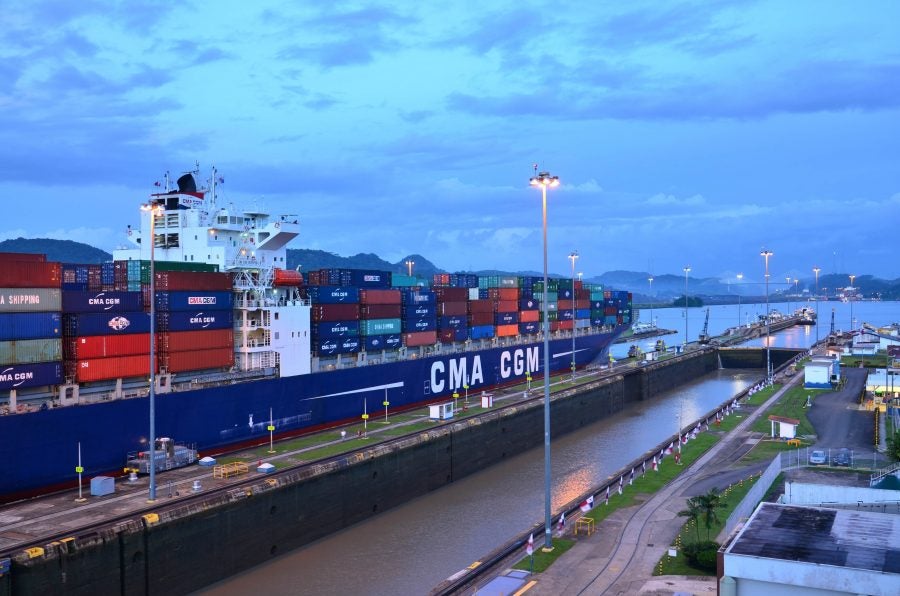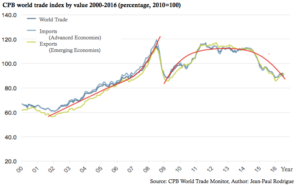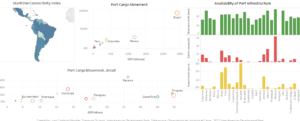In the first quarter of 2017, global trade experienced an uptick in the value of goods being traded. This rise, the first since 2014, is the result of higher commodity prices and slightly stronger demand from emerging economies. Prior to this – between the great recession and 2014 – global trade expanded robustly both in terms of value and volume.
This volatility in global trade created economic consequences on ports and their operators, as well as on maritime and shipping networks. The industry is facing overcapacity and an acute drop in freight rates. Bankruptcies – such as that of Hanji Shipping – and the consolidation of the shipping industry into a few companies has reduced competition in the market for maritime services – in fact, these new alliances will represent almost 75 percent of global market.
The effects of this new supply and demand scenario are even more remarkable in Latin America and the Caribbean, where connectivity limitations and below-average logistics performance are considerable barriers to integration and growth in maritime trade. Infrastructure shortcomings, operational inefficiencies, high port costs, lack of integration in logistics platforms (e.g. electronic single windows) result in higher regional maritime transport costs. In addition, the increase in vessel capacity following the Panama Canal expansion will have unintended consequences: a reduction in maritime services, a rerouting of smaller vessels towards other regions requiring lower freight volumes, and the use of a few, smaller ports able to handle higher transfer volumes. It is expected that the region’s smaller ports will operate as feeders for nearby ports, as a kind of hierarchy between secondary and main hubs.
Opportunities should be seized both by governments and the private sector to jump-start the sector’s performance and mitigate volatility.
The maritime transport industry has both the challenge and opportunity to adapt its services in order to improve its competitiveness. The solution is not only to increase investments in infrastructure, but also to focus on improving port efficiency and better regional planning. It is necessary to seek more efficiency by improving port operations and customs processes, promoting inter-modality, developing logistics platforms, easing regulations, and strengthening coordination among institutional actors.
In countries in the Caribbean region – where 90 percent of imports and exports is transported by sea, with small internal markets and low trade levels, and in many cases with obsolete port infrastructure and inadequate logistics equipment –, solutions must be “tailor-made.” It is important to promote intraregional trade through short-sea shipping networks and services, with smaller vessels and with more frequency. Existing infrastructure and operations must adapt in order to move less-than-container load (LCL) more frequently between neighboring islands.
The Trade and Investment and the Transport Divisions of the IDB are executing a technical cooperation project entitled Increasing Maritime Trade and Transport Efficiency and Connectivity in the Caribbean: Short-Sea Shipping Networks, in which seaborne trade flows, infrastructure, and existing services will be analyzed in order to provide recommendations that may address the region’s specific needs.
For those interested in the areas of trade, transport, and logistics, as well as for academics and experts who may want to deepen their knowledge of these issues, the IDB offers a Community of Practice on Port and Trade Logistics in the Caribbean, where participants can exchange information and best practices via discussions forums, webinars, and other tools.
An earlier version of this blog (in Spanish) was published in December 2016.




Countries in the Caribbean have to seize these opportunities in growing economies and work together both the government and the private sector in order to jump start their markets and compete.
Great insight on the transport sector in america. Thanks for the write up.
Very interesting article.